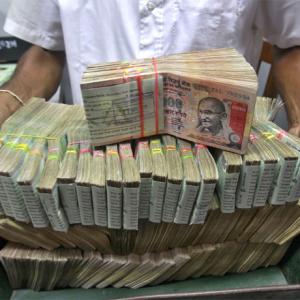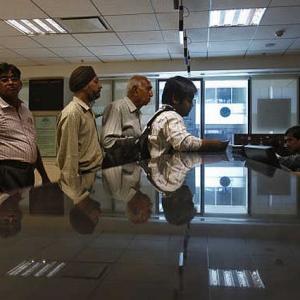 Prime Minister Narendra Modi’s plan to roll out a Goods & Services Tax by April 2016 could hit another hurdle, as the finance ministry wants to compensate states for only three years.
Prime Minister Narendra Modi’s plan to roll out a Goods & Services Tax by April 2016 could hit another hurdle, as the finance ministry wants to compensate states for only three years.
States, on the other hand, have been demanding that the Centre compensate them, for losses incurred on account of switching to the proposed indirect tax regime, for five years.
Also, the ministry has ruled out making any provision for compensation in the Constitution amendment Bill; it may be provided for in the GST law.
The compensation will be given to states on the lines of a formula to be suggested by the 14th Finance Commission, which is likely to give its report later this month.
The panel was asked to give its recommendations on GST’s impact on finances of the Centre and states, besides a mechanism for compensation.
“In our view, there will not be any loss. But, to address states’ concerns, we can compensate them for the first three years.
| TAXING JOURNEY |
The road ahead for GST
|
"We have conveyed this to the 14th Finance Commission,” a finance ministry official, who did not wish to be named, told Business Standard.
States had also asked the Centre to make a provision for the compensation in the Constitution amendment Bill, but the finance ministry is not ready to yield on this.
The official explained that the Constitution Bill could not have such a provision because as amending it was not easy.
An amendment to the Constitution requires passage of the Bill by a two-thirds majority in each house of Parliament, and ratification by at least half the state legislatures.
The Constitution amendment Bill, which will pave the way for GST, is likely to be tabled in Parliament’s winter session (but it will not have a compensation provision).
A draft Cabinet note on the amendment Bill has been prepared and will be circulated for an inter-ministerial consultation after Finance Minister Arun Jaitley has approved it.
“The fear over loss of revenue will remain for some time. It had happened at the time of the value-added tax implementation as well. But all states eventually gained from it.
So, in my view, both the Centre and states will gain from the broad-based structure of GST,” said Sumit Dutt Majumder, former chairman of the Central Board of Excise & Customs and author of ‘GST in India’. Majumder said putting a sunset clause on the compensation had no meaning.
Majumder said putting a sunset clause on the compensation had no meaning.
The Centre could not say it would compensate for only three years even if some states made losses for longer.
“The Centre is committed to suitably compensating states through a legal mechanism.
"We are hopeful of an amicable resolution,” said another finance ministry official who did not wish to be named.
However, some manufacturing states like Gujarat, Maharashtra and Tamil Nadu fear incurring losses in the proposed destination-based tax.
To allay their fears and to protect their revenues, the Centre is planning to keep alcohol out of the GST ambit, constitutionally.
According to a revised draft of the Constitution amendment Bill, petroleum, though zero-rated, will be under GST because it is an input product.
GST, a value-added tax, gives credit for taxes paid on inputs. If petroleum is kept out, it will break the chain for input credits.
However, since “alcohol is primarily a final product and states have revenue considerations, it can be kept out of GST”.
Tobacco, on which the Centre levies excise duty, and entry tax in lieu of octroi, will also be subsumed in GST.
Among other contentious issues were the GST council and the dispute-resolution authority proposed in the Constitution amendment Bill of 2011.
At various meetings of the empowered committee of state finance ministers on GST, states opposed the authority and wanted changes in composition of the council to decide GST rates, exemptions and threshold limits, among other things.
“Changes will be made to the composition of the GST council proposed in the Bill of 2011, and the dispute-resolution authority will be dropped in the new version of the Bill,” said one of the officials quoted earlier.
The Centre’s concerns on the GST compensation issue, as well as those of states, stem from earlier disagreement over on the Central Sales Tax compensation.
While states fear they will become dependent on the Centre for their own dues, the finance ministry’s suspicion is that states might charge higher compensation on the pretext of something else “as they did in the case of CST”.










